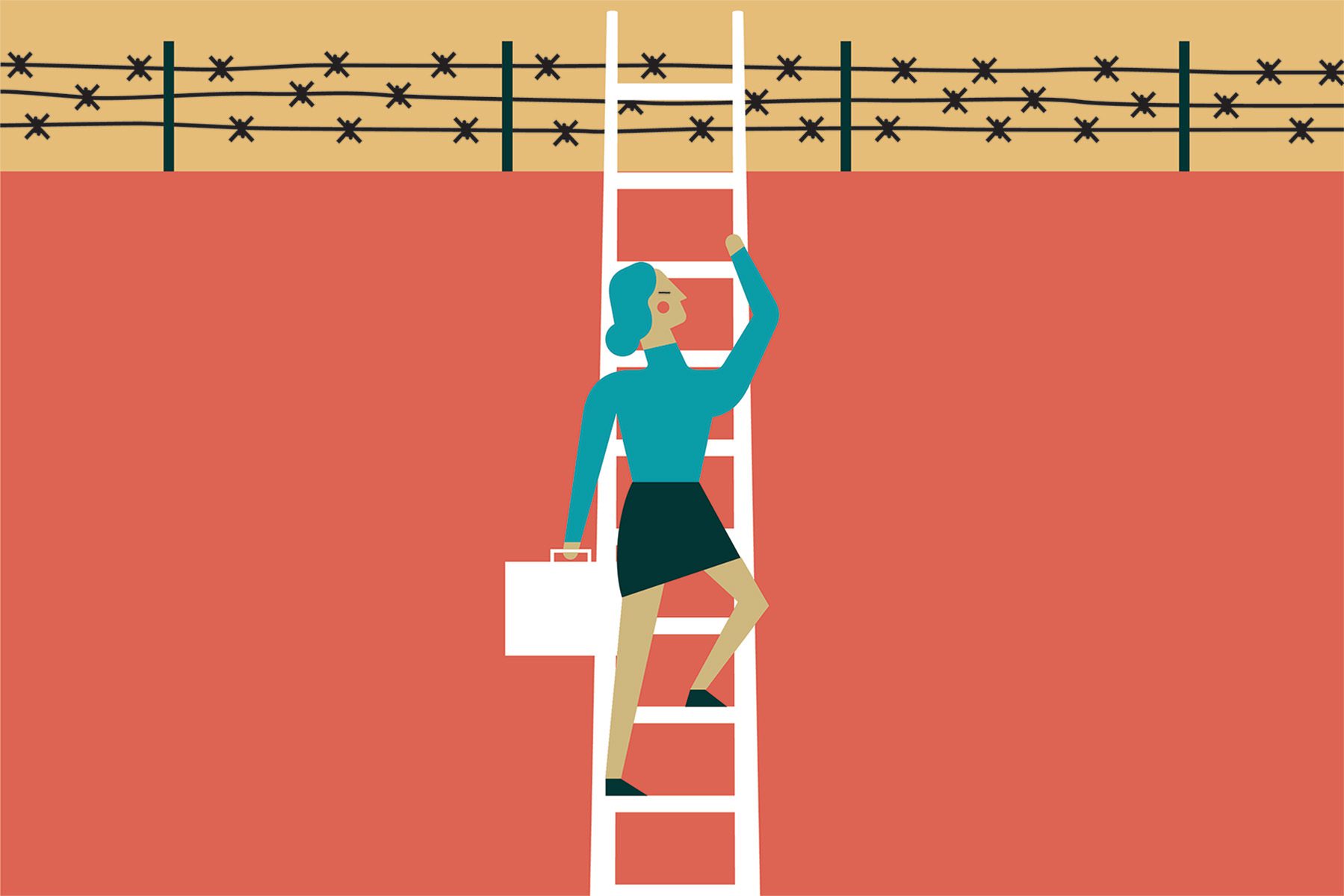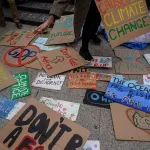Women workers who were previously incarcerated are more optimistic about their economic opportunities than those who have not experienced incarceration — but they face more hurdles when it comes to securing health care, housing, nutritious food and transportation, according to new survey data from consulting firm McKinsey & Company.
The survey captures a snapshot of the disparities between formerly incarcerated people and those who have never been incarcerated. It also sheds light on the increased stigma of incarceration for LGBTQ+ people, one that falls particularly hard on queer women, who are overrepresented in the incarcerated population.
The figures come from the American Opportunity Survey of 25,000 adults by McKinsey and Ipsos. Researchers asked respondents their sexual orientation and gender identities, but the sample size for transgender and nonbinary people was too small to include in the overall survey data, a spokesperson for McKinsey told The 19th.
Twenty percent of previously incarcerated women said they expect to have more economic opportunities over the next year, compared with 15 percent of women who had not been incarcerated.
“I think this is primarily around where they have been and feeling like outside of prison their future and their economic opportunities are much greater than before,” Kweilin Ellingrud, a director of the McKinsey Global Institute and a co-author of the report, told The 19th by email. “That makes complete sense to me that they are on an upward trajectory and moving to greater and greater opportunities.”
But within the incarceration category, the numbers tell two different stories: Previously incarcerated women overall feel more confident about their economic prospects, but those who identified as heterosexual were more likely to have an optimistic outlook than those who identified as lesbian or bisexual.
While 21 percent of previously incarcerated women who identified as straight said they expected to have more economic opportunities, only 17 percent of previously incarcerated women who identified as lesbian or bisexual reported the same. Those numbers nearly flipped among women who have not been incarcerated, however; 21 percent of bisexual and lesbian women who have not been incarcerated expect to have more economic opportunities over the next year, while 15 percent of straight women in this category reported an optimistic outlook.
It’s unclear why straight women in particular who have not experienced incarceration would have a less optimistic economic view than their queer counterparts, given the disproportionate economic hardship queer people overall face. But a host of research suggests that coupled heterosexual women deal with unequal child care and household management responsibilities that affect their work prospects.
The pandemic has exacerbated this for many families. “We know that COVID has been stressful across the board, but has been on average more stressful for women,” Ellingrud said. “More than 2 out of 5 [women] feel ‘always’ or ‘almost always’ burnt out compared to about one-third of men.” Women also had a high level of pre-COVID burnout, Ellingrud said, but did not specify whether this was felt more by straight women.
On the whole, women had a weaker perception of their economic opportunities and access to essential health care, housing and food. The only category in which they felt more secure than men was the stability of their employment. When asked whether they agree with the statement “I feel concerned about the stability of my current employment,” 27 percent of formerly incarcerated men said they strongly agree, compared with 15 percent of other men. Twenty-three percent of formerly incarcerated women strongly agreed with the statement, and 12 percent of women who had not been incarcerated said the same.
Previously incarcerated workers, particularly those who identify as lesbian or bisexual women, were also more likely to report various factors impacting their ability to effectively do their work, including hostile work environments and limited access to high-speed internet.
Some of the largest gaps, whether previously incarcerated or not, were between gay and bisexual men versus lesbian and bisexual women. The survey found that 60 percent of previously incarcerated queer men agree they have access to quality health care, while 53 percent of previously incarcerated queer women said the same. Among previously incarcerated queer men, 70 percent said they have access to reliable transportation, versus 58 percent of previously incarcerated queer women. All of these figures were lower when compared with equivalent groups among those who had not been incarcerated.
Members of marginalized communities – including people of color, low-income people and queer people – may face a number of familial and systemic hurdles such as experiences with discrimination, abuse, economic inequality and untreated mental health concerns. Enduring challenges with these realities, paired with the stigma of a criminal record, increases the difficulty of reentering society after their release and the chances of returning to incarceration.
“The largest hurdle would be the fact that it’s legal to discriminate against formerly incarcerated people,” said Bridgette Simpson, a formerly incarcerated woman who co-founded Barred Business, an organization that educates, trains and provides other assistance to incarcerated and previously incarcerated people. “So that means that we don’t get to have our basic needs met. We can be barred from housing, barred from food stamps. Even when we age, we can’t go into nursing homes.”
Formerly incarcerated LGBTQ+ people carry even more of those burdens, which also disproportionately affect queer women. An analysis from the Sentencing Project highlights that queer women represent 30 percent of the women in jails and prisons, compared with 8 percent of women in the general population. That is significantly higher than the 5 percent of incarcerated men who identify as queer, according to that report.
Though polling indicates that the majority of the American public favor reform to the criminal legal system and rehabilitation for formerly incarcerated people, significant barriers remain.
Simpson said that two important steps in the effort to support previously incarcerated people in society are providing resources to community-based organizations and centering the voices of those most affected in the development of possible solutions. Access to employment, education and substance use treatment are important factors in determining risk of recidivism, so programs that address these needs can play a role in successful reentry, she said.







